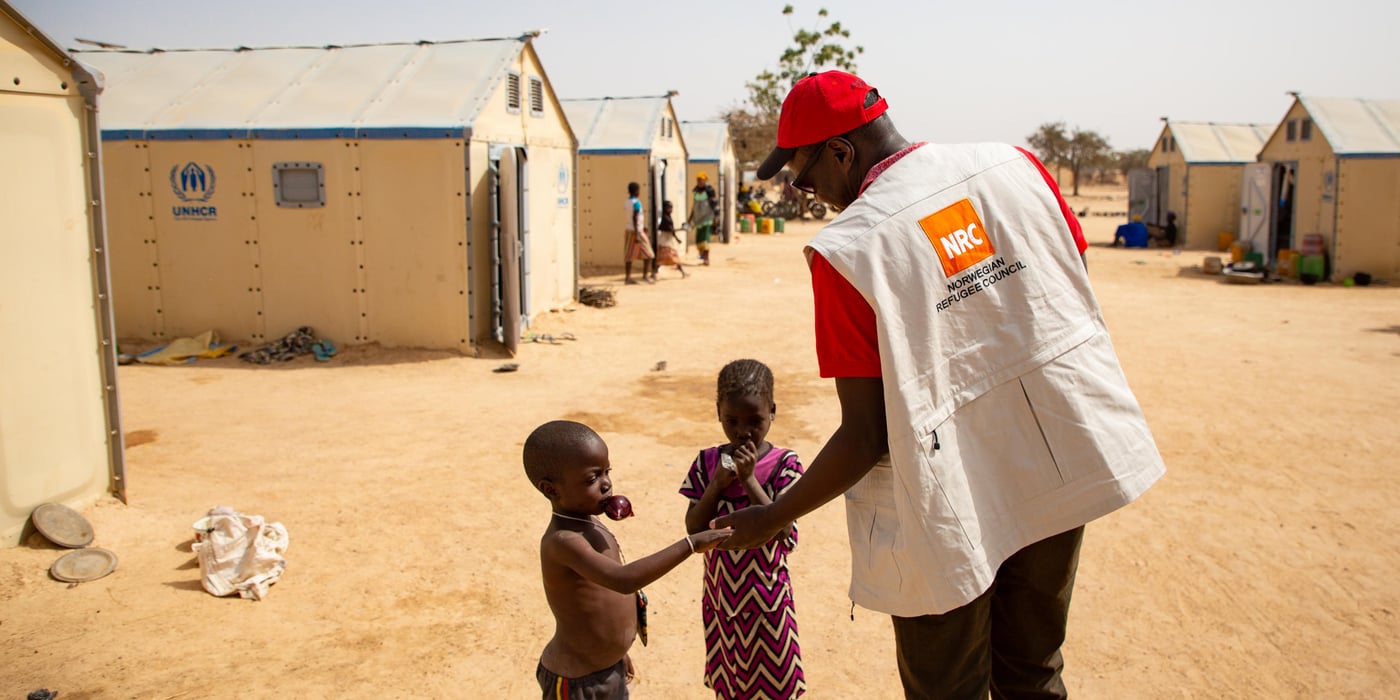
This opinion piece was first published by Thomson Reuters.
Jan Egeland is the Secretary General of the Norwegian Refugee Council and a former United Nations Under-Secretary-General for Humanitarian Affairs. Mark Lowcock is the United Nations Under-Secretary-General for Humanitarian Affairs.
In May, seven young health workers were abducted from a hospital in Somalia and brutally killed. In June, the executions of five of our colleagues in north-eastern Nigeria were posted online for the world to watch.
These terror tactics are designed to drive panic through the global humanitarian community. There were a record 483 attacks against aid workers in 277 separate incidents last year, according to the Aid Worker Security Database. Aid workers are increasingly in the line of fire.
Relief work has always involved some risk. Seventeen years ago today, the UN compound in Baghdad was bombed, killing 22 people, including the UN Special Representative in Iraq, Sergio Vieira de Mello. Subsequently, 19 August became World Humanitarian Day — a day to commemorate fallen aid workers and support those helping people in need.
As we mark World Humanitarian Day, we face a worsening problem. Humanitarian workers are not just getting caught up in the crossfire; they’re becoming targets. The average number of aid workers attacked each year has nearly doubled in the last decade. Evidence suggests this increase is due to a surge in attacks against health personnel, from air strikes on medics in Syria, to assaults and shootings of Ebola workers in the Democratic Republic of the Congo.
When aid workers face the ultimate threat, how do we help them to stay and deliver?
First, those who commit these atrocities must be held to account. Attacking civilians and civilian infrastructure in conflict zones cannot become accepted collateral damage.
International humanitarian law must be upheld. Governments need to strengthen national capacity to carry out investigations into war crimes, and prosecute suspects when the evidence justifies. We must all work with determination to reduce the attacks on aid workers and civilians.
Second, access. Proximity to the world’s 249 million people in need is vital for aid to be delivered. Governments and warring parties must allow timely and unhindered access to ensure relief workers can help communities to save lives. This includes governments removing the red tape that delays aid getting where it’s most needed.
Humanitarian organizations must also do their own reckoning by facing the reality of many of today’s conflict zones, by strengthening humanitarian negotiations, diplomacy and risk management. When we face extremist groups that are almost impossible to negotiate with, we must adapt programming to directly support people in need – for example by providing mobile cash transfers to families so they can buy food and medicine themselves. And take the long route of building acceptance by working with community members, and properly training and equipping local organisations to do the same. There is no easy answer to all this. But facing reality is a good place to start.
A rise in attacks is not the only challenge aid workers face.
Restrictions put in place to control the spread of Covid-19 are making it harder to move aid supplies and workers around. A survey carried out in April revealed that 74 per cent of relief agencies reported an impact on programmes because of the pandemic.
In addition, many donors are signing sanctions, and penning ‘anti-terror’ legislation in response to the rise in power of extremist groups. This is making it harder to help civilians trapped in some areas where groups listed as terrorists operate. Humanitarian workers, especially those working in their home countries, can be exposed to considerable risk when they try to provide assistance in these areas.
But all is not lost. These trends can be turned around.
First, in the time of Covid-19, we will continue to advocate to governments to grant humanitarian workers special exemptions in travel and visa restrictions so we they can continue to operate.
Advocacy works. By late May, 90 humanitarian exemptions had been put in place in 76 out of 103 countries, including in Colombia, Myanmar, the occupied Palestinian territories and Venezuela.
Second, sanctions and counter-terrorism measures are legitimate tools for Member States and military forces to use. But these measures need to be designed in a way that complies with international humanitarian law and humanitarian principles. We welcome the heightened level of discussions that governments are having on these issues.
Wherever there are risks, be it health or personal safely related, everything possible must be done to meet them. We cannot wait until another attack on the scale of Baghdad takes place before we better protect aid workers in conflict zones as they sacrifice themselves to serve humanity.

